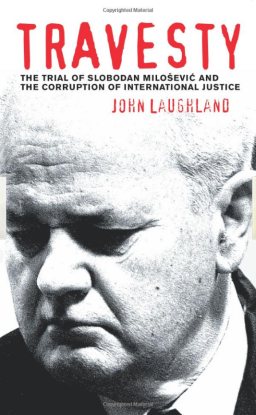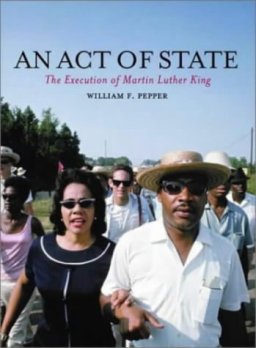Lobster Issue 38 (Winter 1999)
[…] the covert policy.’ In other words Marshall wanted a covert capability outside of his department but still answerable to his guidance. In the aftermath of the Czech coup (the Czechs having been forced to decline Marshall Aid by the USSR the year before), covert operations were further coordinated with the creation of the Office […]
Lobster Issue 24 (December 1992)
[…] he could implement detente with Castro and reform the Agency in the wake of the Bay of Pigs disaster. The Warren Commission attempted to conceal this treasonous coup behind the lone gunman theory but the truth was smoked out by New Orleans D.A. Jim Garrison in his abortive prosecution of Clay Shaw. Garrison was […]
Lobster Issue 57 (Summer 2009)
Reflections on the ‘cult of the offensive’: pre-emptive war, the Israel lobby and US military Doctrine In our book, Spies, Lies and the War on Terror,(1) a central theme is the ascendancy of pre-emptive war doctrine in US military strategy and its impact on public perceptions and the construction of political narrative. A parallel and […]
Lobster Issue 53 (Summer 2007)
[…] the left. His very interesting article on the CIA (and wider American) role in the politics of the Soviet bloc countries post 1991, ‘The Technique of a coup d’etat’, ends with this sentence: ‘But, after Marshall’s exposé of the reality behind the almost identical events in Serbia, there can be no doubt that the […]
Lobster Issue 38 (Winter 1999)
[…] institutions of popular power and workers control, and repressing the revolutionary left. The moment of realisation occurred in May 1937 in Barcelona when the Communists staged their coup against anarchist control of the city. Up to then Orwell had been determined to transfer from the POUM militia to the Communist-controlled International Brigades. Now he […]
Lobster Issue 45 (Summer 2003)
[…] Then Kennedy had to face down the military over Cuba. No wonder Kennedy let John Frankenheimer use the White House to shoot his movie about a military coup, 7 Days in May. Finally: readers of a delicate ideological disposition should note that Pepper is a gloriously unreconstructed lefty and there are a couple of […]
Lobster Issue 56 (Winter 2008/9)
The Shock Doctrine Naomi Klein, (Penguin 2007) X Films: true confessions of a radical filmmaker Alex Cox, London and New York: I. B. Tauris, 2008 Managing Britannia: Culture and Management in Modern Britain Robert Protherough and John Pick, imprint-academic.com, ISBN 978-097645539 Guns for Hire Tony Geraghty, Piatkus, 2008 A Peoples History of American Empire: a … Read more
Lobster Issue 53 (Summer 2007)
[…] Axis Tripartite Pact, Ribbentrop had assured Yugoslavia that Germany would respect its sovereignty and territorial integrity. On March 27, 1941, he attended the meeting, held after the coup d’état in Yugoslavia, at which plans were made to carry out Hitler’s announced intention to destroy Yugoslavia.’ (4) There was also limited evidence against Ribbentrop in […]
Lobster Issue 37 (Summer 1999)
[…] and this spiel of his on Chile looks very much like an intelligence briefing – maybe even one of those distributed at the time of the Chile coup when Neil was working for the Economist, a regular outlet for IRD briefings. Tom Spencer MEP, RIP About a month before the political demise of the […]


